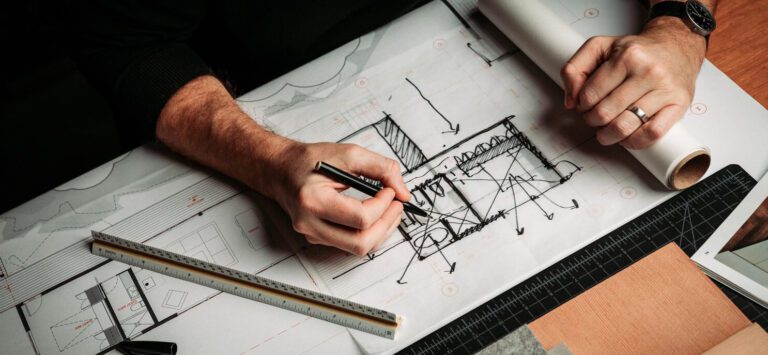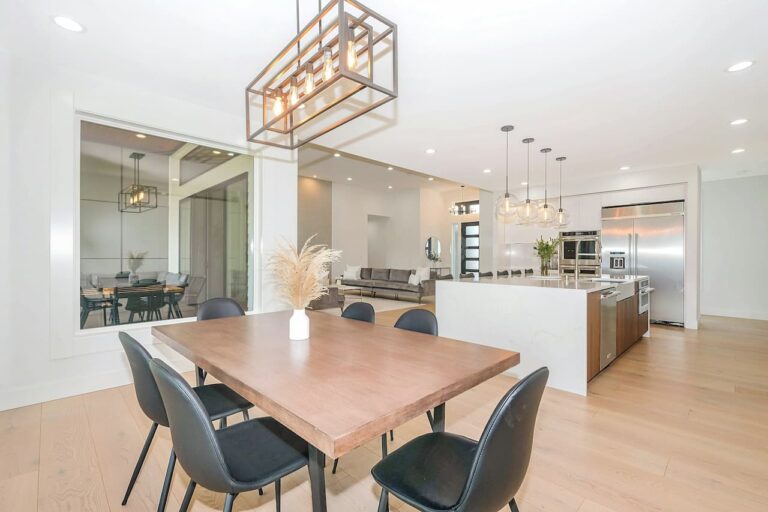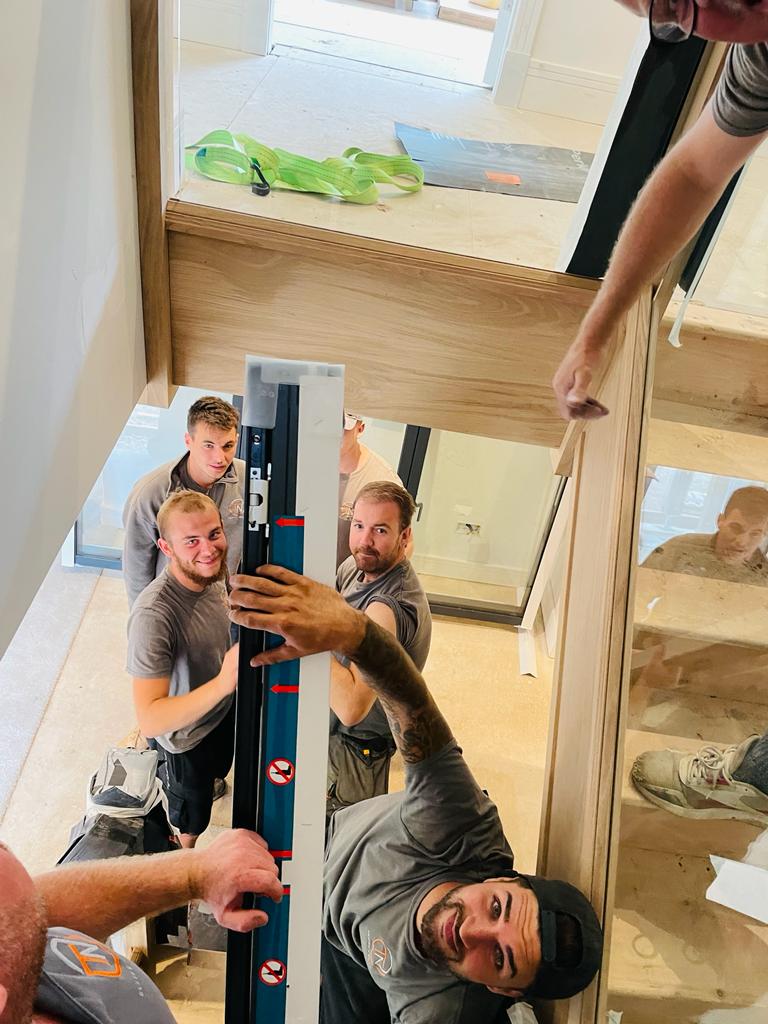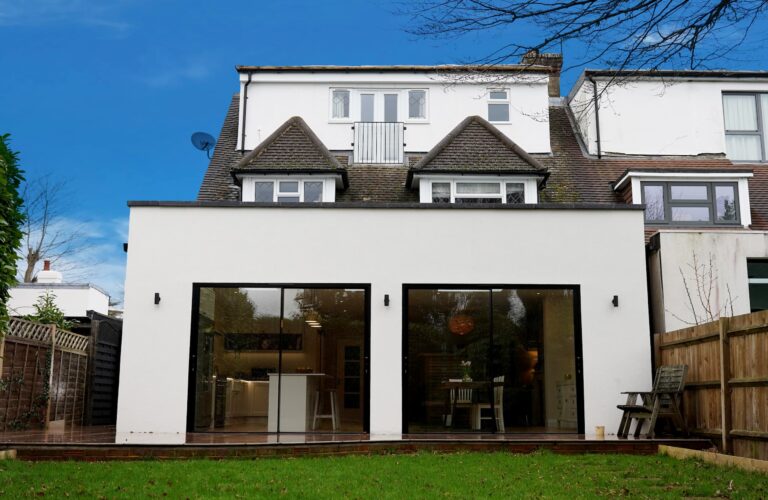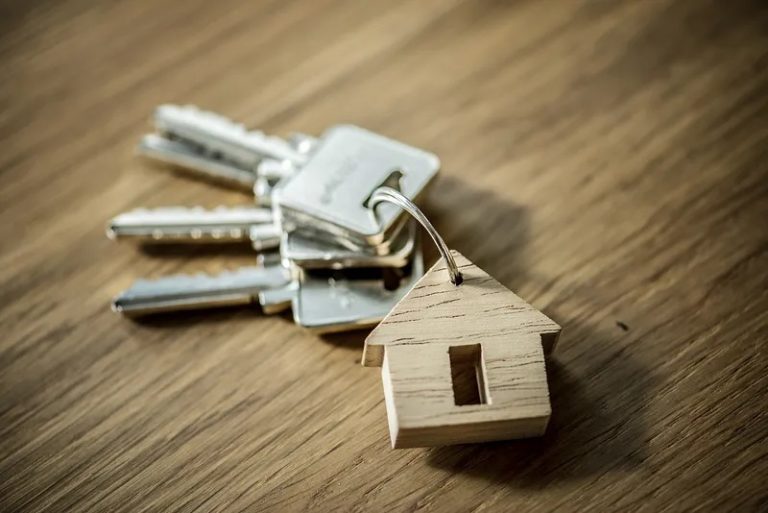Anyone who has considered an extension, renovation, or large-scale building project will be familiar with the term ‘planning permission’. What clients are often not familiar with, however, is what it takes to get planning permission and what the process involves.
In this blog, we’re answering some of the most frequently asked questions about planning permission, focussing on the process of obtaining permission and what it means when you get it.
What is planning permission?
Planning permission is something that must be applied for and granted in advance of all significant building work. It is designed to minimise the erection of buildings and structures which are deemed inappropriate or hazardous to specific environments and locations and is managed by the local authority for your area.
When you apply for planning permission, you essentially outline your plans and the end goal and ask the local authority for permission to break ground and commence your project. If granted, planning permission tends to last for a set period of time, during which the project must be started otherwise the permission expires and you must submit a new application.
There are different forms of planning permission which you can apply for depending on the type of project that you want to commence. The main types of planning permission include a full application which is required to break ground on a new project, a permission in principle application which approves a concept without specific details, and householder permission which is required for an extension. Bigger projects are published outside the specified property or area of land, to give neighbors a chance to review the plans and publish their own thoughts and opinions.
Conversely, you can apply for permitted development which involves a much simpler process and is obtainable for those buildings within specific limits. These include small extensions or the adaptation of an existing building. Look out for future blogs on the ins and outs of permitted development.
When do I need planning permission?
Permitted development projects aside, planning permission is required if you:
· Plan to construct a new property or building
· Plan to convert agricultural land into a building plot or development site
· Plan to make extensive changes and adaptations to an existing property
In order to present a cohesive and comprehensive planning outline, you need to pay for and secure accurate drawings and scale plans, survey drawings, and technical information. All of this comes at a price, meaning that planning permission is neither guaranteed nor cheap to secure.
So, what does the process entail?
The process of obtaining planning permission
The application itself can be filled out online, once you have determined which type of planning permission you need to apply for.
Most applicants will find that some survey work needs to be completed in order to satisfactorily fill out the application. For example, if there are trees in the area then you may need to identify how you plan to protect these, while rural areas will need an outline of how you plan to alleviate any drainage issues. For the most part, an application will need the following:
– Five copies of your application form
– A signed ownership certificate for the property or site
– A location plan and outline of the existing building or what is currently on the site
– A statement outlining the plans and reason for the renovation or work
– Comprehensive drainage information
– Ecological surveys depending on the site
– The correct fee
How long does it take to get planning permission?
The timespan from submission of your application to the receipt of the result is around eight weeks, although more complex cases may require additional information and thus take longer. The more changes you make during the process, the longer it takes to get a result which is why it’s so important to ensure your original application is thorough.
How much does it cost?

Again, this differs depending on the project and the scale of the work that you wish to undertake. For the most part, you will have to pay an upfront application fee as well as a number of additional fees to have surveys conducted and professional plans and drawings produced.
While the application fee payable to your local authority will generally cost a couple of hundred pounds, the consultancy fees, architectural drawings, and other surveys that are required as part of your application can elevate the overall cost to the thousands. This is something worth getting a quote for and properly researching before you commit to the process.
It’s critical to note, as already identified, that submitting your application does not guarantee approval – and nor does the correct paying of fees. In some cases, you may pay the fee and still be rejected, which is why seeking professional advice is recommended.
What happens if I am refused planning permission?
There are endless factors that can affect the planning proposal process and the outcome of any application – from environmental factors and disturbance to parking and highway safety issues.
If you are refused planning permission, you can ask a planning supervisor for advice on how to adjust the plans and submit a new application free of charge within 12 months of the receipt of the original decision. If you do not agree with the refusal, you can appeal for a hearing although this can prove costly and, again, is not a guarantee of success.
Can I proceed without planning permission?
While not necessarily illegal, this is not advised – and can result in your project being deemed for alteration or even demolition by the local authority. While it is possible to apply for retrospective planning permission in this instance, if you did not receive permission in the first place then the result is unlikely to change and you can be faced with a high bill.
Looking for more advice and support with your next building project?
Here at TN Design and Build, we are well-versed in the process of obtaining planning permission and have worked with countless clients to help them overcome complex issues and achieve permission for comprehensive building work and renovation plans.
If you need advice on submitting your application or wish to discuss your plans with us prior to submitting your permission application, don’t hesitate to reach out to us directly. You never know, we might even have some ideas that will make your upcoming project even bigger and better!


